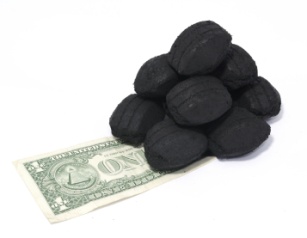 Cross-posted from ThinkProgress Green.
Cross-posted from ThinkProgress Green.
A new economic analysis of the costs of pollution to the United States finds that coal power is harming the economy. In the American Economic Review article “Environmental Accounting for Pollution in the United States Economy,” economists Nicholas Z. Muller, Robert Mendelsohn, and William Nordhaus model the physical and economic consequences of emissions of six major pollutants (sulfur dioxide, nitrogen oxides, volatile organic compounds, ammonia, fine particulate matter, and coarse particulate matter) from the country’s 10,000 pollution sources. They estimate the “gross external damages” (GED) from the sickness and death caused by the pollution, and compare that to the value added to the economy:
Solid waste combustion, sewage treatment, stone quarrying, marinas, and oil and coal-fired power plants have air pollution damages larger than their value added …
Coal plants are responsible for more than one-fourth of GED from the entire U.S. economy. The damages attributed to this industry are larger than the combined GED due to the three next most polluting industries: crop production, $15 billion/year; livestock production, $15 billion/year; and construction of roadways and bridges, $13 billion/ year.
“Five industries stand out as large air polluters,” the authors write, “coal-fired power plants, crop production, truck transportation, livestock production, and highway-street-bridge construction.”
When the authors add in highly conservative estimates of the cost of carbon dioxide pollution, they find that “the damages caused by oil- and coal-fired power plants are between 30 and 40 percent higher.” With an estimated social cost of carbon — a damage estimate of global warming pollution — of $65 (far less than other estimates), the GED for coal-fired generators is $0.21/kilowatts.
In other words, instead of being “cheap” and “affordable,” coal is actually the costliest fuel for electricity.
“The findings show that, contrary to current political mythology, coal is underregulated,” Legal Planet’s Dan Farber comments. “On average, the harm produced by burning the coal is over twice as high as the market price of the electricity. In other words, some of the electricity production would flunk a cost-benefit analysis. This means that we’re either not using enough pollution controls or we’re just overusing coal as a fuel.”


